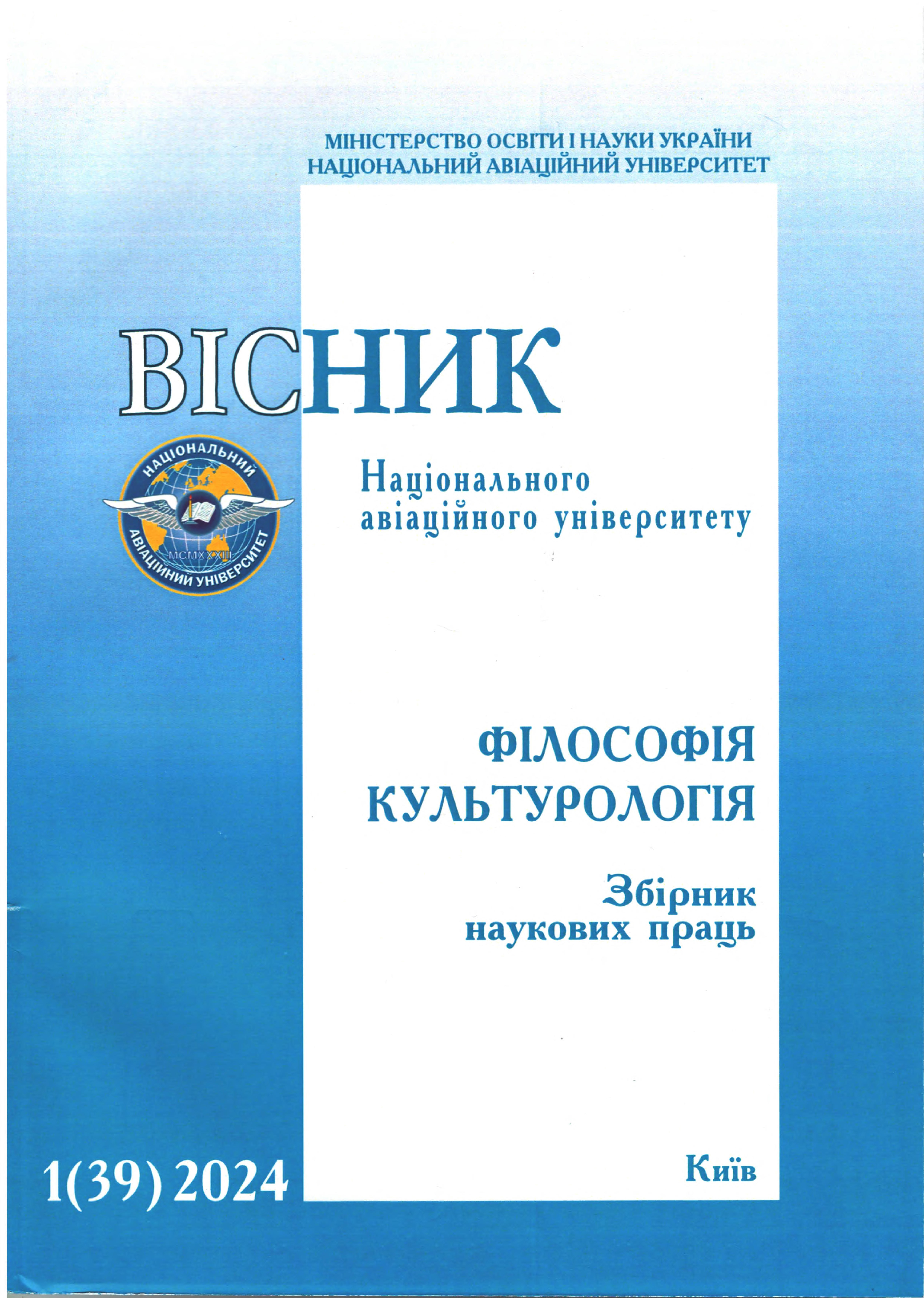THE PHENOMENON OF INTERACTION IN MODERN SOCIAL COMMUNICATION WITHIN COMMUNICATIVE SPACE OF THE INFORMATION SOCIETY
DOI:
https://doi.org/10.18372/2412-2157.39.18456Keywords:
information society, interaction, communication, dialogue, humanity, spirituality, Other.Abstract
Introduction. Over the past 50-70 years, from the end of the 20th century to the beginning of the 21st, humanity has experienced significant changes, which today are considered a cultural transformation. This period of intense changes in all spheres of life can be described as the "new axial era". Events in Ukraine and Israel emphasize that the world will no longer be the same as it was before, emphasizing the importance of studying changes in social communication. The aim and tasks. The article aims to explore the concept of interaction as a basic, essential sociocultural, ontological factor of modern communicative processes. The author set a task to determine the prerequisites and social-communicative mechanisms that contribute to interaction culture formation. Research methods are determined by the interdisciplinary nature of the problem, which requires the use of a number of scientific approaches. It is based on the dialectical method, which is used at all levels of research, both in substantiating the ontological status of the phenomenon of interaction in modern communicative processes and for meaningful analysis of the concept of "communication". The author uses the methodological possibilities of such methods as systemic, cultural-historical and comparative. Research results. The scientific research of domestic scientists in the fields of social philosophy, philosophical anthropology, ethics, philosophy of culture, and psychology became the theoretical basis of the article. The author reveals the peculiarities of interaction as a special type of social relations. They are characterized by the partners' attitude to each other as beings endowed with the characteristics of subjectivity and are based on the mutual recognition of this subjectivity. These are partnership relations. In communication, partners see each other as a co-participant, an interlocutor, where one does not treat the other as a means to achieve a specific goal. It is the concept of "interaction " that captures, in our opinion, a unique essential feature of a person – humanity. Discussion. There is an active, creative process of information circulation, its discussion, and comprehension in interaction. This process helps forward adequate solutions, development of a common position, the necessary life experience. Such a process contributes not only to the expansion and enrichment of the information itself, but also to the spiritual and practical self-affirmation of each of the partners through the manifestation of their humanity. Conclusions. Here humanity as a measure of human essence implies the responsibility of a person, the ability to limit oneself in one's needs and interests when they meet the needs and interests of the common world of one's existence. Humanity presupposes a person's openness to the Other, being tolerant of the Other, perceiving and understanding, respecting his Other's life world.
References
Freyer H. Uber das Dominnantwerden technischer Kategorien in der Lebenswelt der industriellen Gesellschaft. Akademie der Wissenschaften und Literatur. Abhandlungen der Geistes und Sozialwissenschaftlichen Klasse, Jg. 1960. № 7. Wiesbaden, 1961. Р. 15.
Андрос Є. І. Біваленетність людського єства та проблема метафізичного зла. Грані людського буття: позитивні та негативні виміри антропокультурного. Київ: Наукова думка, 2010. 352 с.
Висоцька О. Є. Комунікація як основа соціальних перетворень (у контексті становлення постмодерного суспільства): Монографія. Дніпропетровськ: «Інновація», 2009. 316 с.
Дротянко Л. Г. Філософські проблеми мовознавства. Київ: Навчальна книга, 2002. 128 с.
Дротянко Л. Г. Цифровий вимір сучасного етапу цивілізаційного розвитку соціуму. Вісник Національного авіаційного університету. 2021. Вип. 2 (33). С. 16-21. (Серія «Філософія. Культурологія»). DOI http://doi.org/10/18372/2412-2157.33.15635.
Єрмоленко А. М. Визнання самоцінності інакшого буття як основа для порозуміння між людьми. Філософська думка. 2019. № 3. С. 7-12.
Єрмоленко А. М. Дискурс. Комунікація. Моральність. Київ: Наукова думка, 2021. 438 с.
Малахов В. А. Спілкування. Філософський енциклопедичний словник, редкол.: В. І. Шинкарук (голова) та ін. Київ: Абрис. 750 с.
Малєєв К. С. Час історії й культуротворюючі форми комунікації. Грані людського буття: позитивні та негативні виміри антропокультурного. Київ: Наукова думка, 2010. 352 с.
Мокляк Л Людяність як світоглядний принцип соціального проектування в добу сучасних глобальних викликів. Вісник Національного авіаційного університету. 2023. Вип. 1 (37). С. 56-61. (Серія «Філософія. Культурологія»). DOI: http //doi.org/10.18372/2412-2157.37.17576.
Тютюнник Ю. М. Людина в постнекласичному світі: як жити? Круглий стіл. Totallogy-XXI. Постнекласичні дослідження. № 22. К.: ЦГО НАН України. 2009. С.85-88.
Ченбай Н. Проблема кризи духовності в контексті нових цивілізаційних викликів Вісник Національного авіаційного університету. 2022. Вип. 2 (36). С. 130-133. (Серія «Філософія. Культурологія»). DOI: http //doi.org/10.18372/2412-2157.36.169867


